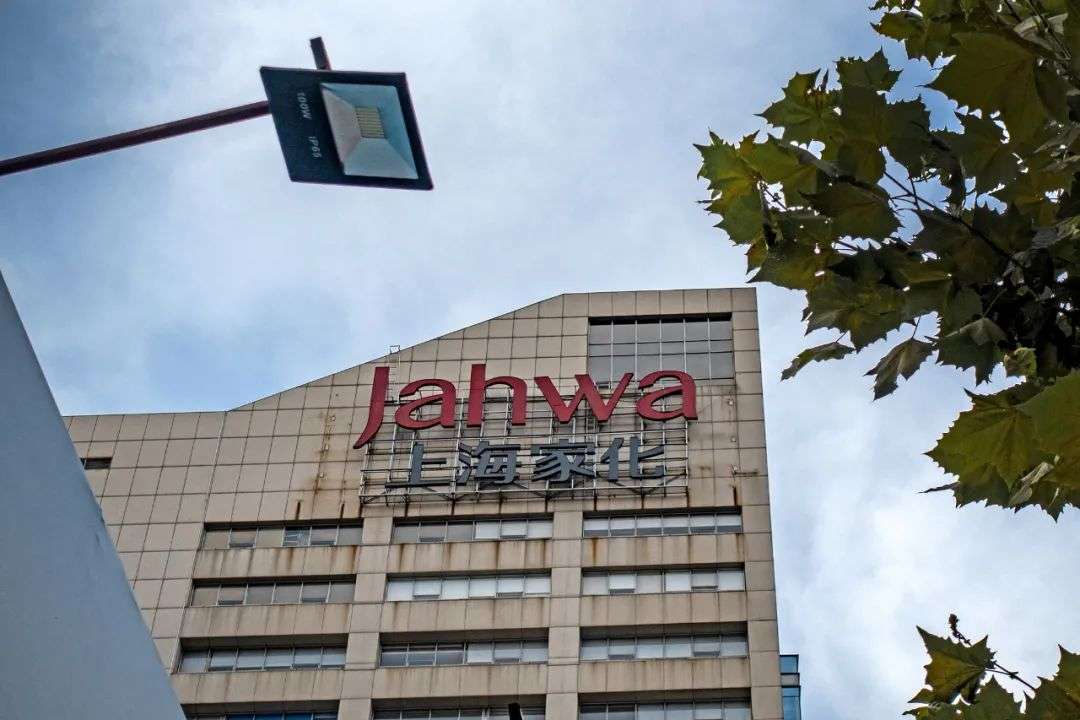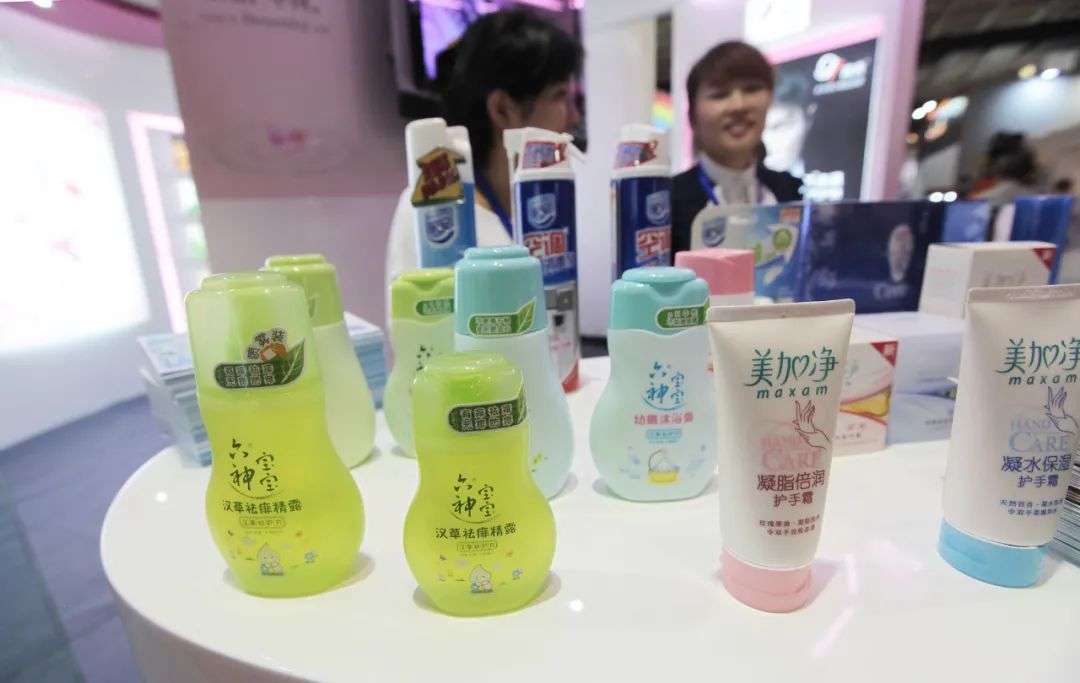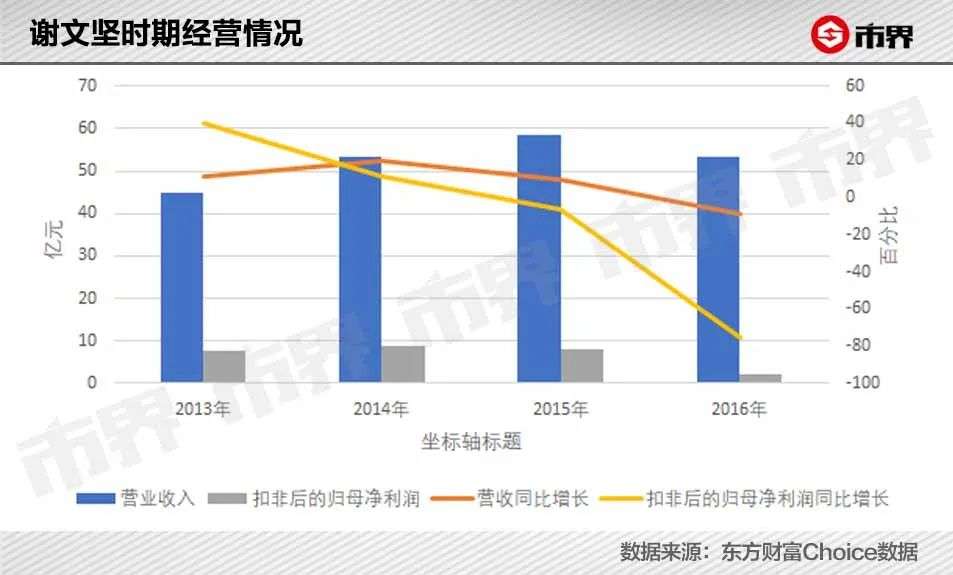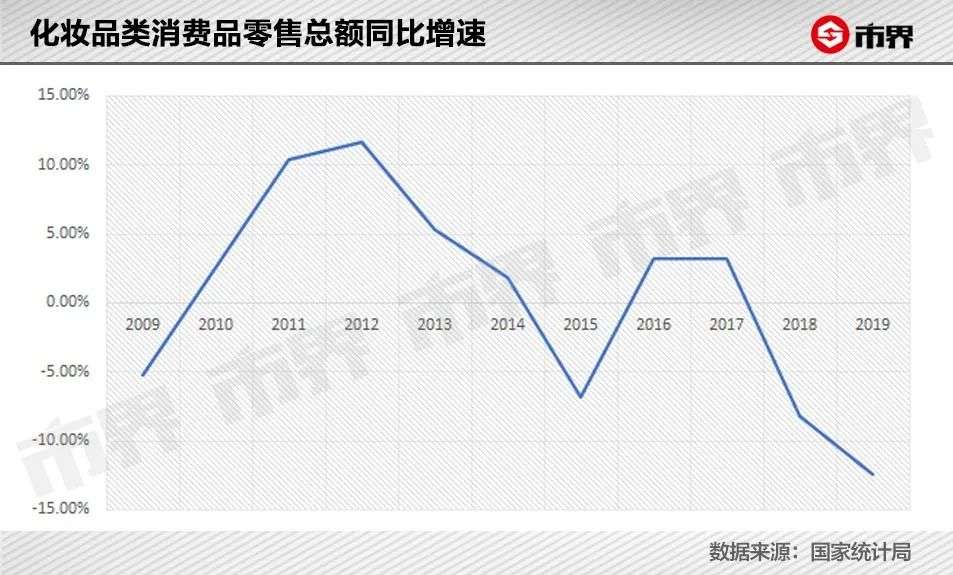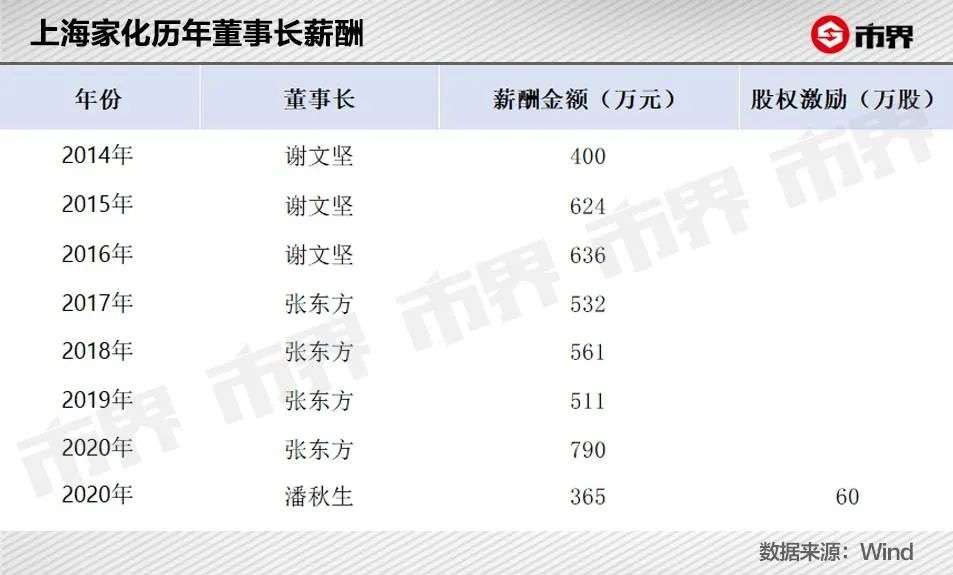The century-old giant has been delayed by internal fighting for 7 years.
Editor’s note: This article is from the micro-channel public number “municipal boundaries” (ID: ishijie2018), Author: Qi Minqian, Editor: Liu Xiao Ying.
Liushen, Yumeijing, Herborist, these well-known brands are all owned by one company-Shanghai Jahwa.
This company with a history of more than 100 years was once my country’s largest daily chemical company and a famous A-share stock. From 2005 to 2013, the company’s stock price increased by more than 50 times.
In 2013, Ping An of China took over, the company prospered and declined, and the management began to turmoil. Three chairman of the board were changed in seven years.
In 2020, as the company ushered in a new head, Feng Liu, a private equity tycoon, began to invest heavily in Shanghai Jahwa. In the second quarter of 2020, the fund he managed held 1.94% of Shanghai Jahwa’s shares, and then increased the position to Around 3.5%. Shanghai Jahwa’s stock price has also returned to its 2013 level, and the market seems to be looking forward to it again.
However, the 2020 annual report released by Shanghai Jahwa in early February this year showed that the company’s revenue and net profit fell again due to factors such as the epidemic and the adjustment of department stores, traditional stores, and e-commerce channels.
For both the business and the industry, too much can be changed in 7 years. Shanghai Jahwa, who has been busy with internal adjustments, raised his eyes and was already waiting for powerful enemies. Not only were many foreign big-name powerful enemies overwhelming the country, even the “back waves” such as Proya and Marumi are also likely to catch up.
After 7 years of wasting Shanghai Jahwa, can he really stand up?
The soul figure runs away
For nearly 30 years after 1985, the rise and fall of Shanghai Jahwa were closely related to Ge Wenyao.
This year, Ge Wenyao went to Shanghai Household Chemicals Factory (the predecessor of Shanghai Jahwa) as the factory director. The history of this factory can be traced back to the end of Qing Dynasty. At that time, there were no modern cosmetics companies in our country. The imported cosmetics were so expensive that ordinary people couldn’t afford it. Feng Futian, a businessman from Guangdong, aimed at business opportunities and established a cosmetics company, Kwong Sang Hong, in Hong Kong.
In 1903, Kwong Sang Hong established an office in Shanghai, which was the predecessor of Shanghai Jahwa.
Although Shanghai Jahwa has a long history and has been my country’s largest cosmetics company for a long time, it is limited by the social and market environment and its scale is not large. In 1985, the company’s fixed assets were only 4 million yuan, with an annual output value of 100 million yuan. The main products were low-end toilet water and facial creams.
Ge Wenyao’s first major event was to use the asset-light model to save Shanghai Jahwa’s first pot of gold.
The so-called asset-light model is the current OEM model, but the foundry at that time was also called a joint venture. According to the national policy at the time, the product produced in the joint factory can retain a profit of 32%, but the production at the Shanghai Jahwa factory can only retain a profit of 3.29%. Moreover, finding an affiliated factory for production can also reduce the factory’s fixed assets and production personnel investment. The Shanghai Jahwa factory only needs to focus on recruiting R&D and marketing personnel.
After the production task was given to the joint factory, Ge Wenyao led Shanghai Jahwa to nurture the brand “Megajing”. The first mousse, the first hand care product, the first perfume, and the first sunscreen in our country are all under the brand name of Maxam.
By 1990, Shanghai Jahwa’s annual sales reached 450 million yuan, of which 300 million yuan was contributed by the United States and Canada.
The success of Meganet has attracted the “favor” of American SC Johnson. In 1991, most of the assets and key employees of Shanghai Jahwa, including the two brands of Maxam and Meilu, were divested and formed a joint venture with SC Johnson of the United States.
But the real purpose of the joint venture between SC Johnson and Shanghai Jahwa is to use Meganet’s channels to sell its own branded products, rather than really want to continue to expand Meganet.
Seeing that Meganet was getting worse and worse by SC Johnson, 17 months later, Ge Wenyao returned to Shanghai Jahwa.
In the work of the joint venture company, Ge Wenyao learned two ways of thinking: one is the brand manager system, and the other is the pursuit of maximizing gross profit.
Therefore, after returning again, Ge Wenyao made every effort to develop Liushen toilet water, which contributed the most to the company’s profits, and later created Herborist for the mid-to-high-end market. For many years, Herborist was the leading product of Shanghai Jahwa.
After the main business development is on the right track, Ge Wenyao continues to expand and diversify. Shanghai Jahwa has invested in two Chinese medicine pharmaceutical factories, Sanya Yalong Bay Marriott Hotel and Sephora. He himself was even the first to suggest that the Sanya City Government develop Haitang Bay.
In 2013, Shanghai Jahwa’s gross profit margin increased from 42% in 1997 to 63%; net profit increased from 35 million yuan to 800 million yuan.
After reaching the peak, an “internal fight”Let the company fall into a long adjustment. The two parties in the dispute are Ge Wenyao and China Ping An.
At that time, Ge Wenyao was not satisfied with the original Jahwa market. He wanted to turn the company into a fashion group in China. The acquisition of Seagull Watch was what he wanted to do.
The original state-owned enterprise system had many restrictions on foreign investment and equity incentives, so Ge Wenyao began to promote restructuring. In 2011, during the restructuring of the Jahwa Group, Ge Wenyao selected Ping An of China as the controlling shareholder of Jahwa Group. Ge Wenyao is still the chairman of Jahwa Group and the listed company Shanghai Jahwa.
After Ping An of China became a major shareholder, it disagrees with Ge Wenyao on the acquisition of Seagull Watches and other projects. In October 2012, Ping An suddenly informed Ge Wenyao to send two Ping An directors to Shanghai Jahwa. Ge Wenyao thought to himself: “Isn’t it a good idea not to send?” The contradiction between the two sides escalated.
In April 2013, Ping An suddenly visited the Jahwa Group and Shanghai Jahwa to check the accounts. The reason was that someone inside the company reported that the management had “off-book accounts, small treasury” problems, and pointed the finger at Ge Wenyao. On May 11, Ping An held a board of directors and dismissed Ge Wenyao as the chairman of Jahwa Group.
Although there were business-level conflicts before, the fuse that turned Ping An and Ge Wenyao against each other was actually a rumor. At that time, a middle-level member of the Jahwa Group told a person at Ping An that Ge Wenyao was going to emptied Shanghai Jahwa with the management. As an investor, Ping An is naturally unwilling to keep Ge Wenyao from hearing such remarks.
After being dismissed from the position of chairman of Jahwa Group, Ge Wenyao was still the chairman of the listed company Shanghai Jahwa. After several games, he decided to resign from Shanghai Jahwa, so he quietly packed up his things.
On the morning of September 17, 2013, Auntie Cleaning found that he was packing things. When she met people at the company, she asked: “Ge is always going to leave?” The news spread like wildfire. In order not to cause violations, Ge Wenyao The application for retirement was submitted on the same day, and Shanghai Jahwa ended the 28-year “Ge Wenyao Era”.
Foreign corporate elites have difficulty adapting
After Ge Wenyao left, the successor of the chairman of Shanghai Jahwa was Xie Wenjian.
Before taking up his post in Jahwa, Shanghai, Xie Wenjian was the chairman of Johnson & Johnson Medical China, and a typical professional manager of foreign companies. When working for Johnson & Johnson Medical, Xie Wenjian’s resume was quite glamorous. According to a report from China Business News, he was from the company’s business department director and regional general manager,Go straight to the person in charge of China.
The contradiction between Ge Wenyao and Ping An turned Shanghai Jahwa into a pool of “muddy water.” Xie Wenjian ignored the opposition of his family and accepted the position with an attitude of meeting challenges.
However, the reality may be far more difficult than he thought.
First, there were constant disputes with Ge Wenyao’s original team. After Xie Wenjian took office, Shanghai Jahwa took Ge Wenyao to court; he dismissed Ge Wenyao’s old department and Wang Zhuo, who was the company’s general manager at the time; the original financial manager and secretary of the board also left one after another. Ge Wenyao has repeatedly “blasted” Xie Wenjian for mismanagement, which consumes the company’s financial resources.
In company management, Xie Wenjian continues the consistent “foreign enterprise elite” model. At the beginning of 2014, he hired Bain Consulting to assist the company’s middle and senior management team in formulating a five-year plan: by 2018, the company’s sales revenue will exceed 12 billion yuan, and its market share will enter the top 5 from 10th. The company’s main business will focus on the three major areas of beauty and skin care, personal care and home care. The company’s resources will be tilted towards the five core brands of Liushen, Herborist, Goff, Maxam and Qichu.
In 2013, Shanghai Jahwa’s total revenue was 4.5 billion yuan. To achieve this five-year goal, it means that the company’s revenue compound growth rate will reach 22% from 2013 to 2018. In the previous 6 years, this figure was 10%. Xie Wenjian’s goal is so big that we can imagine it.
In order to improve the efficiency of the supply chain, Shanghai Jahwa’s central factory in Qingpu District had to be relocated in 2014. With the government’s 650 million yuan demolition fund, the company spent a total of 1.35 billion yuan to build a modern central factory.
Before, many of Shanghai Jahwa’s products were produced by OEMs, while the company focused on R&D and marketing. In the era of Ge Wenyao, the pursuit of gross profit with light assets and cost reduction has played a vital role in the development of Shanghai Jahwa. Spending huge sums of money to build factories on their own has attracted many people’s doubts.
In addition to constantly becoming “heavier”, Shanghai Jahwa under Xie Wenjian’s governance has also embarked on a “younger” path. At that time, the Herborist brand under Shanghai Jahwa had been making a big fuss about “Chinese culture”. Unfortunately, the national tide had not risen in those few years, and Herborist had not been able to take advantage of the east wind. In order to keep the brand close to young people, in addition to traditional advertising, Liushen also has in-depth content cooperation with “Running Man 4” in Tencent.
In terms of channels, the company vigorously expanded online channels. In 2016, it also exclusively named the Tmall Double Eleven Gala at a cost of 100 million yuan.
However, these measures did not work in time, and Xie Wenjian’s ambitious goals were not achieved. From 2013 to 2016, during Xie Wenjian’s tenure, Shanghai Jahwa’s revenue increased from 4.5 billion yuan to 5.3 billion yuan, with a compound growth rate of only 4%. The company’s net profit attributable to the parent after deduction was reduced from 800 million yuan to 200 million yuan.
If revenue cannot rise, the capacity of the new factory invested heavily cannot be fully utilized. The Qingpu plant was put into operation in 2018, and the capacity utilization rate of this plant in 2020 is only 26%.
In November 2016, Xie Wenjian resigned from the post of chairman of Shanghai Jahwa and was succeeded by Zhang Dongfang with a transcript of unspeakable success.
During Zhang Dongfang’s tenure, Shanghai Jahwa carried out the largest merger and acquisition, acquiring the parent company of the British brand Tommy Star from the major shareholder Jahwa Group for RMB 2 billion, increasing the maternal and infant market.
In 2019, Shanghai Jahwa’s non-net profit was 380 million yuan, less than half of 2013. After six years of adjustment, the capital market began to “abandon” Shanghai Jahwa. When the 2019 annual report was released, Shanghai Jahwa’s stock price had already been cut in half compared to its peak in 2013.
On January 16, 2020, Ge Wenyao posted a Weibo: “Today Proya’s stock market value is 20.66 billion yuan, exceeding Jahwa’s 20.64 billion yuan.” With three tearful expressions.
This Weibo once attracted a lot of sorrow. But in fact, as early as September 2019, the market value of Shanghai Jahwa was surpassed by Marumi shares, which were listed for less than 40 trading days.
What happened behind the decline in performance?
Pan Qiusheng has a long way to go
From the perspective of the industry background, neither Xie Wenjian nor Zhang Dongfang could keep up with the good times. Since 2012, the growth rate of total retail sales of cosmetics has slowed down, and companies in the cosmetics industry will naturally face greater pressure.
From the company’s internal point of view, the establishment of factories to increase the proportion of self-operation, the vigorous development of online channels in order to catch up with the times, continuous mergers and acquisitions, etc., have eroded the profitability of Shanghai Jahwa.
Taking 2019 data as an example, Shanghai Jahwa’s revenue is 7.6 billion yuan, 4 times that of Marumi and 2.5 times that of Proya. However, from the comparison of non-net profits, the status of the three has undergone a major reversal. In 2019, Marumi’s non-net profit deducted 450 million yuan, ranking first; Proya 390 million yuan, 10 million yuan more than Shanghai Jahwa.
Marumi shares main eye cream products, which have higher prices. Therefore, from 2013 to 2019, the company’s gross profit margin was 3-10% higher than the other two; the gross profit margin of the other two was almost the same.
What really widens the gap is the net interest rate. In 2015, the disposal of the equity of Jiangtian Pharmaceutical Co., Ltd., which it had previously participated in, led to a significant increase in Shanghai Jahwa’s net profit. Since 2016, the company’s net profit has been lower than its peers.
In the past five years, Shanghai Jahwa’s sales expense ratio and management expense ratio are both higher than those of the other two.
One reason for the high sales expense rate is that Shanghai Jahwa has more brands. In addition to counters, cosmetics franchise stores and other channels offline, there are also maternal and child stores, hypermarkets, and supermarket channels. There are many offline channels and online channels have to pay attention to. Shanghai Jahwa will inevitably pay more sales expenses.
About half of Shanghai Jahwa’s administrative expenses are employee salaries. Since 2014, the number of employees in Shanghai Jahwa has grown rapidly. In 2013, the number of employees in Shanghai Jahwa was 1,176, which will increase to 5,501 by 2020.
Compared with Marumi and Proya, Shanghai Jahwa’s per capita salary is also higher. In 2019, the average annual salary of Shanghai Jahwa is about 317,200 yuan. During the same period, Marumi and Proya are about 141,000 yuan and 124,000 yuan respectively. In 2020, the average annual salary of Shanghai Jahwa is about 170,000 yuan, which is still in the industry. The high position.
There are many people and high welfare. If you can create more value, it is true that Shanghai Jahwa’s per capita income has dropped from 3.8 million yuan in 2013 to 1.28 million yuan in 2020. In 2019, Marumi sharesAnd Proya’s per capita income was 2.04 million yuan and 1.1 million yuan, respectively.
The salary of the directors and supervisors of Shanghai Jahwa is much higher than that of their peers. In 2020, the high pre-tax remuneration of Shanghai Jahwa’s directors and supervisors totaled 17.67 million yuan. In 2019, this figure was 10.51 million yuan, which was millions of yuan higher than the high salaries of Marumi and Proya’s directors and supervisors in the same period.
The growth rate of revenue and net profit has slowed down, and the profitability is far less than that of its peers. After falling to the altar for 7 years, Shanghai Jahwa is in urgent need of recovery. In May 2020, Pan Qiusheng became the new head of the company, shouldering the burden of the recovery of this century-old enterprise.
During his previous tenure at L’Oreal China, Pan Qiusheng led the online transformation of L’Oreal Paris and Maybelline.
Online is very important to the current Shanghai Jahwa.
In the first half of 2020, Shanghai Jahwa’s online revenue accounted for 38.7%, while Proya and Marumi’s online revenue accounted for 63.6% and 53.7%, respectively.
Therefore, the market is generally optimistic about Pan Qiusheng’s arrival. The stock price of Shanghai Jahwa has also risen from the lowest point of 24.29 yuan in April 2020 to around 50 yuan within a month or so of his duty. Almost back to the peak level.
However, Pan Qiusheng’s first 2020 annual report was not ideal. The company’s revenue and net profit have both fallen. The only thing that is gratifying is the increase in non-net profit. In addition to being affected by the general environment, Shanghai Jahwa is also taking the initiative to lose weight and improve efficiency. In 2020, the company will shut down a total of 462 department store counters. These will all have a certain impact on profitability.
From the perspective of specific brands, the once leader Herborist has fallen into a quagmire of losses. In 2020, Herborist Cosmetics Co., Ltd. had a net loss of 156 million. In 2019, this figure was 62.24 million.
Pan Qiusheng believes that Herborist’s “frozen three feet is not a day’s cold”. The core problem is the lack of functionality in brand positioning and the aging of packaging and other designs that cannot cater to mainstream aesthetics. “Revival Herborist” will become Shanghai Jahwa will be the top priority in 2021.
The brand that has brought surprises to the market is Yuze. This brand has existed as early as the era of Ge Wenyao, taking the route of functional skin care products. When Xie Wenjian took charge of the company, Yuze was not among the five major brands to be developed. Zhang Dongfang only started to exert his efforts after he took office.
Fortunately, in the past two years, consumers haveThe more attention is paid to the ingredients of skin care products, the “component party” has risen, and functional skin care products have also achieved rapid growth. Coupled with the cooperation with Internet celebrities such as Li Jiaqi, Yuze has become an Internet celebrity brand and the fastest growing brand in Shanghai Jahwa in the past two years.
In 2019, Yuze’s sales increased by 80% year-on-year, and in 2020 it will achieve a three-digit rapid growth. This may be another explosive product after years of silence in Shanghai Jahwa.
At the Shanghai Jahwa’s strategy conference on March 18, Pan Qiusheng gave a detailed interpretation of the company’s strategy. In short, it is necessary to provide consumer insights and use smart retail, private domain operations and other means to do a good job. Channel innovation.
However, compared with Ge Wenyao’s entrepreneurial period, today’s consumers are more critical and the market environment is more complex. The revival of Shanghai Jahwa is also facing greater challenges.
After seven years, Shanghai Jahwa first watched the online transformation and company management of Marumi and L’Oréal surpassed itself, and also witnessed the changes in consumption channels and consumer groups, the perfect diary and other new domestic brands. Rapid rise.
The 100-year-old Shanghai Jahwa lost to the times and also to himself.
Reference material: “Ge Wenyao’s Glory and Dreams of National Brands for 40 Years” by Tian Anli
